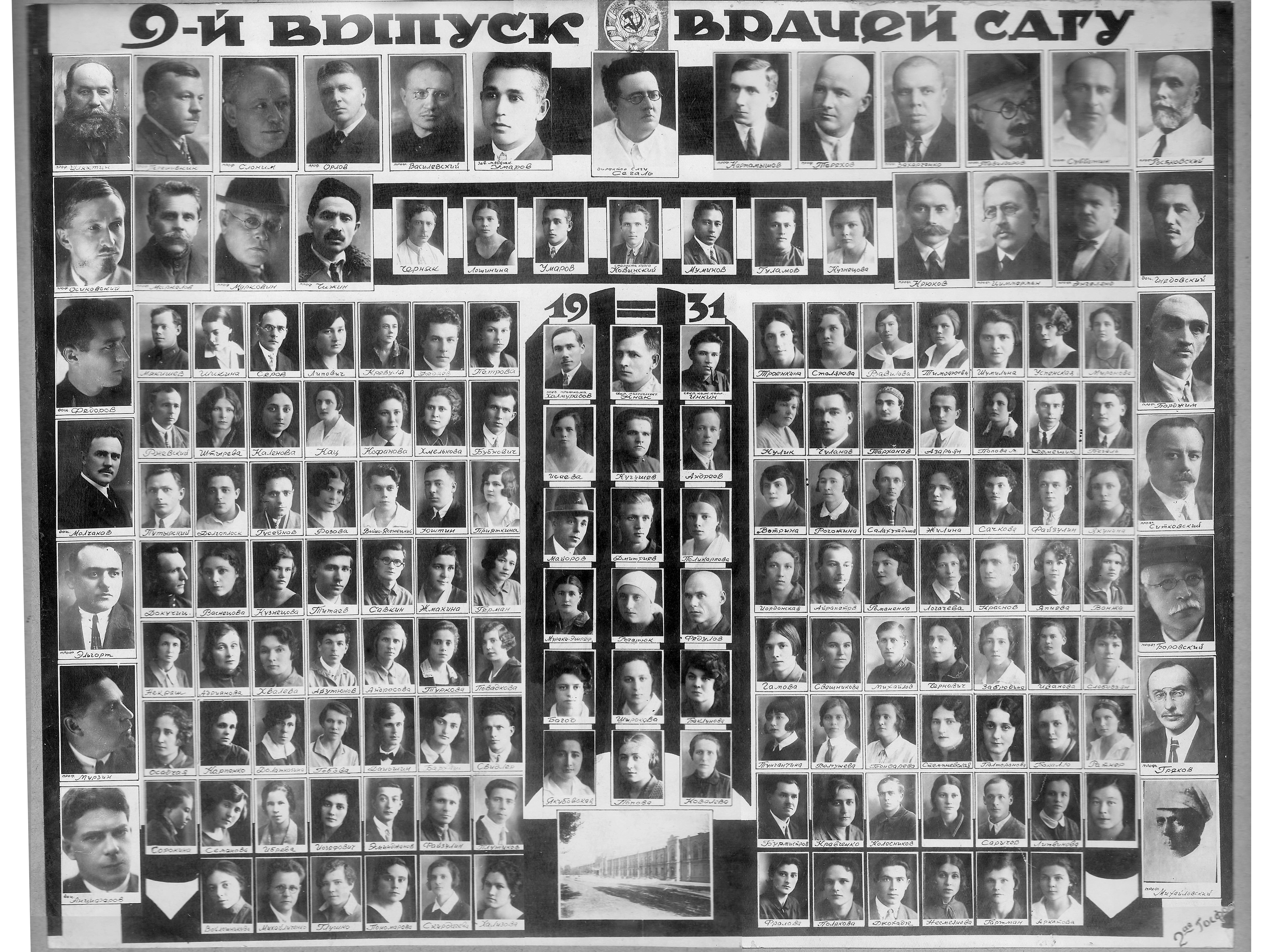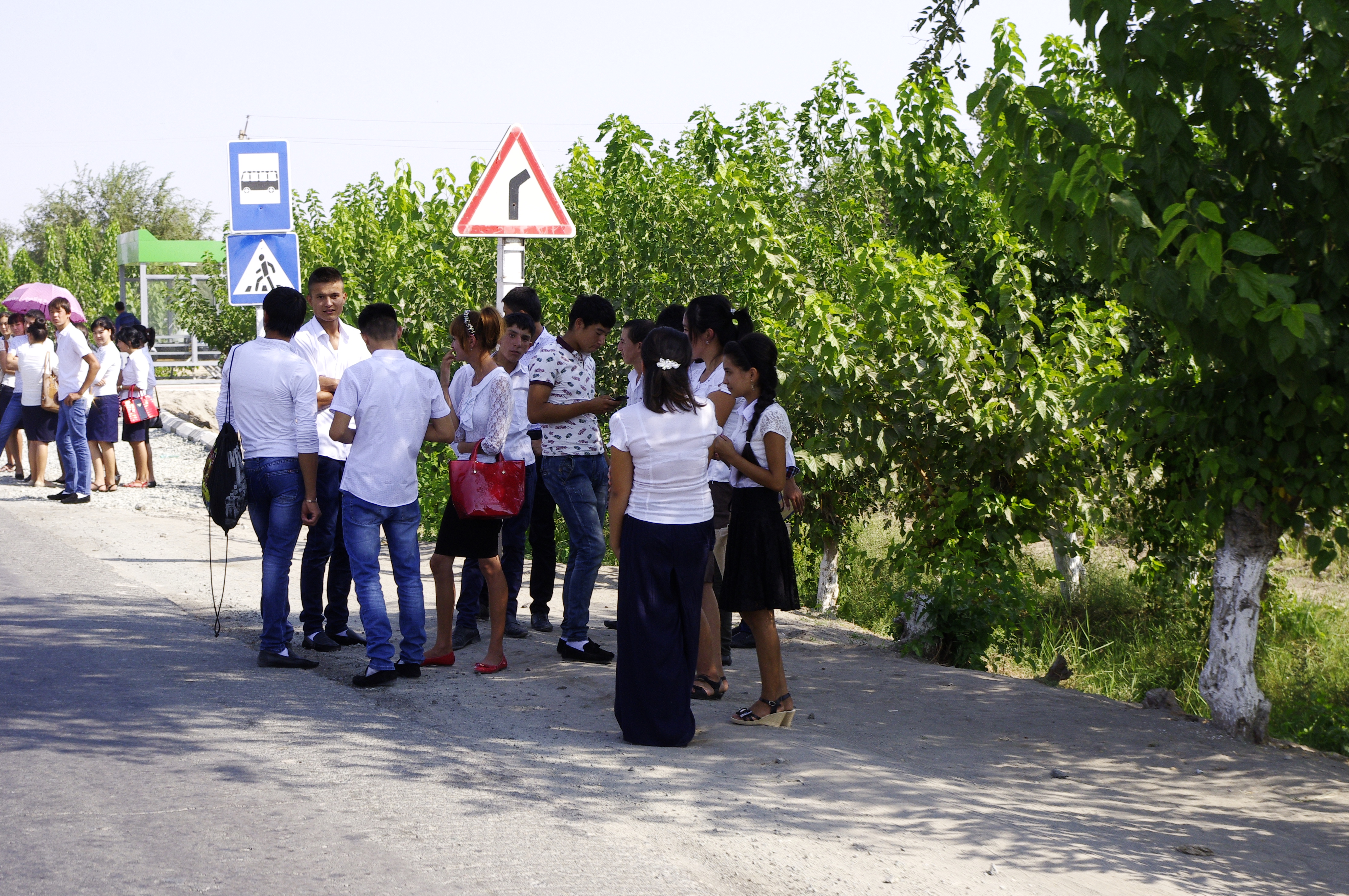|
Sherzodkhon Kudratkhuja
Sherzodkhon Kudratkhuja (uzb: Sherzodxon Qudratxo`ja: ru: Шерзо́дхон Таджидди́н угли Кудратходжа́ born May 26, 1974, in Tashkent, Uzbekistan) - is a rector of University of Journalism and Mass Communications, Board Chairman of the Uzbekistan national media association. He is also Chairman of the International Press Club organization. Career From 1991 to 1996, he studied at Tashkent State University. After completing his studies, he worked as an editor and political commentator at the Information Directorate of the Uzbek Broadcasting Corporation from 1996 to 1998. Following that, he served as the director of the international broadcasting Directorate of Uzbekistan from 1998 to 1999. From 1999 to 2000, he held the position of head of the press center and service. From 2012 to 2013, he served as the Head of the Department of Internet Journalism and Information Technology at the National University of Uzbekistan named after Mirzo Ulugbek. Foll ... [...More Info...] [...Related Items...] OR: [Wikipedia] [Google] [Baidu] |
Abdulla Aripov
Abdulla Nigmatovich Aripov (; , born 24 May 1962) is an Uzbek politician who serves as the prime minister of Uzbekistan, in office since 14 December 2016. Aripov is a member of the Uzbekistan Liberal Democratic Party. He was deputy prime minister from 2002 to 2012 and again in 2016. Career Politics On May 30, 2002, Aripov was appointed as Deputy Prime Minister of Uzbekistan – Head of Complex on Information and Telecommunications Technologies Issues – Director-General of Communications and Information Agency of Uzbekistan. Then from October 2009 – oversees the Social Sphere, Science, Education, Health, Culture and responsible for contacts with CIS-partners. On February 4, 2005 Aripov was appointed as deputy prime minister. Then in a reshuffle in August 2012 he was appointed Head of Complex on Information Systems and Telecommunications. In September 2016 he was again appointed as deputy prime minister. On 12 December 2016, he was nominated by the ruling party to form a ... [...More Info...] [...Related Items...] OR: [Wikipedia] [Google] [Baidu] |
Shavkat Mirziyoyev
Shavkat Miromonovich Mirziyoyev (born 24 July 1957) is an Uzbek politician who has served as President of Uzbekistan and Supreme Commander-in-Chief of the Armed Forces of Uzbekistan since 14 December 2016. Previously, Mirziyoyev led the government as a Prime Minister of Uzbekistan from 2003 to 2016.Brief profile of Mirziyoyev , Radio Free Europe/Radio Liberty. , RadioFreeEurope/RadioLiberty, 25 September 2006. Mirziyoyev joined the |
Tashkent
Tashkent (), also known as Toshkent, is the Capital city, capital and List of cities in Uzbekistan, largest city of Uzbekistan. It is the most populous city in Central Asia, with a population of more than 3 million people as of April 1, 2024. It is located in northeastern Uzbekistan, near the border with Kazakhstan. Before the influence of Islam in the mid-8th century AD, Sogdian people, Sogdian and Turkic people, Turkic culture was predominant. After Genghis Khan destroyed the city in 1219, it was rebuilt and profited from its location on the Silk Road. From the 18th to the 19th centuries, the city became an Tashkent (1784), independent city-state, before being re-conquered by the Khanate of Kokand. In 1865, Tashkent fell to the Russian Empire; as a result, it became the capital of Russian Turkestan. In Soviet Union, Soviet times, it witnessed major growth and demographic changes due to Population transfer in the Soviet Union, forced deportations from throughout the Soviet Unio ... [...More Info...] [...Related Items...] OR: [Wikipedia] [Google] [Baidu] |
Uzbeks
The Uzbeks () are a Turkic peoples, Turkic ethnic group native to Central Asia, being among the largest Turkic ethnic groups in the area. They comprise the majority population of Uzbekistan, next to Kazakhs, Kazakh and Karakalpaks, Karakalpak minorities, and also form minority groups in Afghanistan, Tajikistan, Kyrgyzstan, Kazakhstan, Turkmenistan, Russia, and China. Uzbek diaspora communities also exist in Uzbeks in Turkey, Turkey, Saudi Arabia, Uzbek Americans, United States, Ukraine, Uzbeks in Pakistan, Pakistan, and other countries. Etymology The origin of the word ''Uzbek'' is disputed. One view holds that it is eponymously named after Oghuz Khagan, also known as ''Oghuz Beg'', became the word ''Uzbeg'' or ''Uzbek''.A. H. Keane, A. Hingston Quiggin, A. C. Haddon, Man: Past and Present, p.312, Cambridge University Press, 2011, Google Books, quoted: "Who take their name from a mythical Uz-beg, Prince Uz (beg in Turki=a chief, or hereditary ruler)." Another theory states th ... [...More Info...] [...Related Items...] OR: [Wikipedia] [Google] [Baidu] |
Uzbekistan National Media Association
Uzbekistan national media association () is a non-governmental organization founded in 2003 that unites the country's mass media outlets. The association is dedicated to developing the media industry, supporting journalists, and implementing various educational and professional projects. It actively works on fostering a modern media environment, promotes freedom of speech, and supports the professional growth of journalists, playing a significant role in shaping the country's information policy. History The National media association of Uzbekistan was initially established as the National Association of Electronic Mass Media of Uzbekistan in 2003 by Firdavs Abdukhalikov to strengthen the media sphere of Uzbekistan and promote the development of independent journalism. The Association sets itself the task of publicizing socially significant problems, maintaining freedom of speech, and raising the professional level of journalists. In 2022, the organization changed its name to the N ... [...More Info...] [...Related Items...] OR: [Wikipedia] [Google] [Baidu] |
Tashkent State University
National University of Uzbekistan (NUUz; ) is a public research university located in Tashkent, Uzbekistan. NUUz is the oldest and largest university in Uzbekistan. The National University of Uzbekistan is named after Mirzo Ulugbek. NUUz professors and teaching staff work with modern materials and science and have relationships with the world's most distinguished scientific schools. History The government of the Soviet Union, headed by Lenin, founded Turkestan People's University in 1918 with 1,200 students. It was renamed to Turkestan State University in 1920, then renamed to First Central Asian State University in 1923 and renamed again to Tashkent State University, named after Lenin in 1961 and finally named National University of Uzbekistan after Uzbekistan's independent . In 1961–1969, NUUz won the first place among institutions in Central Asia in the contemporary system of education and became one of the most prestigious higher institutions of the Soviet Union. Ma ... [...More Info...] [...Related Items...] OR: [Wikipedia] [Google] [Baidu] |
1974 Births
Major events in 1974 include the aftermath of the 1973 oil crisis and the resignation of United States President Richard Nixon following the Watergate scandal. In the Middle East, the aftermath of the 1973 Yom Kippur War determined politics; following Israeli Prime Minister Golda Meir's resignation in response to high Israeli casualties, she was succeeded by Yitzhak Rabin. In Europe, the invasion and occupation of northern Cyprus by Turkish troops initiated the Cyprus dispute, the Carnation Revolution took place in Portugal, the Greek junta's collapse paves the way for the establishment of a parliamentary republic and Chancellor of West Germany Willy Brandt resigned following an espionage scandal surrounding his secretary Günter Guillaume. In sports, the year was primarily dominated by the FIFA World Cup in West Germany, in which the hosts won the championship title, as well as '' The Rumble in the Jungle'', a boxing match between Muhammad Ali and George ... [...More Info...] [...Related Items...] OR: [Wikipedia] [Google] [Baidu] |
Living People
Purpose: Because living persons may suffer personal harm from inappropriate information, we should watch their articles carefully. By adding an article to this category, it marks them with a notice about sources whenever someone tries to edit them, to remind them of WP:BLP (biographies of living persons) policy that these articles must maintain a neutral point of view, maintain factual accuracy, and be properly sourced. Recent changes to these articles are listed on Special:RecentChangesLinked/Living people. Organization: This category should not be sub-categorized. Entries are generally sorted by family name In many societies, a surname, family name, or last name is the mostly hereditary portion of one's personal name that indicates one's family. It is typically combined with a given name to form the full name of a person, although several give .... Maintenance: Individuals of advanced age (over 90), for whom there has been no new documentation in the last ten ... [...More Info...] [...Related Items...] OR: [Wikipedia] [Google] [Baidu] |
People From Tashkent
The term "the people" refers to the public or common mass of people of a polity. As such it is a concept of human rights law, international law as well as constitutional law, particularly used for claims of popular sovereignty. In contrast, a people is any plurality of persons considered as a whole. Used in politics and law, the term "a people" refers to the collective or community of an ethnic group or nation. Concepts Legal Chapter One, Article One of the Charter of the United Nations states that "peoples" have the right to self-determination. Though the mere status as peoples and the right to self-determination, as for example in the case of Indigenous peoples (''peoples'', as in all groups of indigenous people, not merely all indigenous persons as in ''indigenous people''), does not automatically provide for independent sovereignty and therefore secession. Indeed, judge Ivor Jennings identified the inherent problems in the right of "peoples" to self-determination, as i ... [...More Info...] [...Related Items...] OR: [Wikipedia] [Google] [Baidu] |
Uzbekistani Politicians
Demographic features of the population of Uzbekistan include population growth, population density, ethnicity, education level, health, economic status, religious affiliations, and other aspects of the population. The nationality of a person from Uzbekistan is Uzbekistani, while the ethnic Uzbek majority call themselves Uzbeks. Much of the data is estimated because the last census was carried out in Soviet times in 1989. Overview Uzbekistan is Central Asia's most populous country. Its 36.8 million people (as of January 2024) comprise nearly half the region's total population. The population of Uzbekistan is very young: 30.1% of its people are younger than 14. According to official sources, Uzbeks comprise a majority (84.4%) of the total population. Other ethnic groups, as of 1996 estimates, include Russians (2.1% of the population), Tajiks (4,8%), Kazakhs (3%), Karakalpaks (2.5%), and Tatars (1.5%). Uzbekistan has an ethnic Korean population that was forcibly relocated to the ... [...More Info...] [...Related Items...] OR: [Wikipedia] [Google] [Baidu] |





